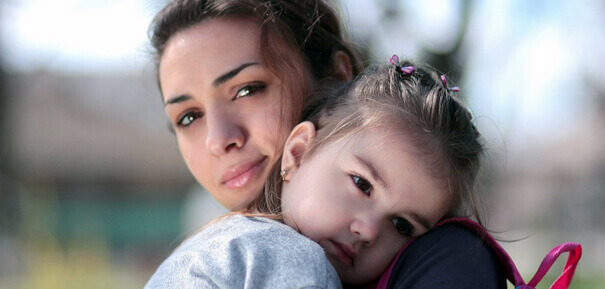Essential Tips on How Not to Overprotect Your Kids
See also: Increasing Independence
When you’re fueled with such indescribable love and fear that something might happen to your kids, it’s hard to fight the urge to tape pillows around them and follow their every move so that they never get hurt. Needless to say, you’re not doing them any favors by acting this way.
Kids don’t come with manuals and parents are often left clueless about the perfect way of raising their loved ones.
Here’s a hint: there is no perfect way.
Parenting is an art of balancing and, in order to master it, you need to accept the fact you’re only human, just like your child. Humans learn through observation and through real experiences: they make mistakes, they fail, they get hurt, and they become smarter in the process.
In order to raise a healthy child that will gradually grow a backbone and become self-sufficient, you need to let them go and face the world.
Here are a few things to bear in mind.
Guide Them to Right Answers

Instead of providing them with ready-to-use solutions, encourage your kids to come up with their own. This can be done through dialogue where parents take the position of mentors.
Ancient Greeks were really onto something: if you take a look at Socrates and his method of teaching, you will see he never gave away the answers freely to his students. He encouraged them to come to a certain solution on their own, simply by guiding them and asking the right kind of questions. This method invites the student to be active and become more independent while strengthening their analytical and problem-solving skills, along with critical and creative thinking.
Let’s observe this in an example: your kid has been running by the pool, they slipped, fell hard, and came to you crying. While instinctively, you want to bite their head off for being so reckless, you need to take a deep breath and handle this situation wisely. Bruises will heal, but it’s important for your kid to learn a lesson here. Don’t ask them “Why did you run when the tiles are wet and slippery?” because you’ll probably get an answer like “I wanted to catch Ben” and that’s not helpful. Ask them “What happened and what have you learned?” This question will help your child cognitively process the mistake they made and understand the cause-effect relationship. Empirically the pain they experienced will serve as a reminder to be more careful in the future.
Encourage Them to Explore Independently

You have to have enough faith your children will know how to handle potentially dangerous situations. The best thing you can do is to arm them with knowledge and remind them to be careful.
The trend of “helicopter parenting” has spread like an epidemic over the past few decades and the reasons for it are debatable. According to a report, Children’s Independent Mobility: An International Comparison, in 1971 in the UK approximately 80% of 8-year-olds went to school unsupervised. This was not a matter of parental neglect, it was a first step towards raising healthy resilient adults. By the early nineties, this number has dropped to 9%, despite the undeniable benefits of independent mobility. For example, your child can enjoy the freedom of visiting their friend in the neighborhood on their own or savor other activities without relying on your daily schedule.
Children need to experience the world, and a few scratches are perfectly normal for these adventures. Consider teaching your kids to ride a bike, as they will:
- Perfect their coordination and movement
- Gain a sense of space and orientation
- Grow healthy, build muscles, and enjoy a great cardiovascular exercise
- Experience the excitement of cycling on their own
- Learn the importance of being alert when participating in traffic
- Gain good traveling habits
- Get a chance to explore your local area and places not reachable by foot
If you’re afraid your loved ones will wander off too far and get too tired to pedal back home, electric bikes might offer a good solution as they have electric systems for assisted pedaling. Children love discovering shortcuts or hidden places: they need just a little encouragement to start imagining magical worlds and play-pretend.
Don't Pressure Them to be Perfect

Despite your good intentions, expecting your child to become the next Einstein can crush their self-esteem and affect their social life.
Many parents expose their children to stress as they seek validation from them. This creates a vicious circle: kids don’t want to fail their parents while parents don’t want to fail their kids. For overprotective parents, failing their kids means failing at raising perfect little geniuses or future presidents. They want their kids to reach their full potentials but they sometimes push too hard. For kids, failing means not living up to this standard.
Parents that fall into this description tend to be harsh or introduce harsh discipline when it comes to school obligations. They see education as the most important thing and so they forbid kids to play because it’s “for their own good”.
This can only get worse as years go by and could lead to potentially severe consequences, especially when the child gets old enough to choose a college. You need to accept your child’s identity and help them develop it and broaden it. Their interests are being formed in childhood and they evolve as they grow up: you should be there as a support not as someone who dictates the road they should take. There’s no need to pressure them into becoming an over-achiever or engage in extracurricular activities they don’t enjoy.
Here’s what you shouldn’t do when it comes to your child’s school activities:
- Don’t drop by the school too often: many parents decide to solve the conflicts their child goes through, be it with the principal, teachers, or even child’s peers. If you intervene too frequently, your child will expect others to solve their problems in life and they will be ill-equipped to handle them on their own later.
- Don’t help them with homework all the time: according to a study from the University of Texas, parents shouldn’t get too involved with their kids’ homework as it’s not effective and it makes children too dependent. On the other hand, initiating a conversation about post-school education plans is advisable.
- Don’t interfere in their choice of college: it is one thing is to offer advice or show interest in your children’s future, but a completely different one to decide in their name. Research published in the Journal of Child and Family Studies showed that parents’ over-involvement leads to students’ depression, increased anxiety, and overall dissatisfaction.
Sometimes you think you’re helping when, in fact, what you’re doing is hurting your child in the long run. That’s a bit hard to accept but the sooner you do , the better.
Let Them Fail

Failure is the most natural thing in the process of succeeding and it shouldn’t be perceived through catastrophic lenses.
Failure actually gives your child a precious opportunity to analyze their mistakes and come up with a better solution and try again. It is important for developing emotional intelligence as failure always causes feelings of embarrassment and discomfort. It’s good that your child goes through these emotions: they are not negative – they support your child’s growth and emotional capacity.
Modern parenting implies the parents’ attempts to protect their children from this even though it is truly beneficial. It helps the child to develop problem-solving and coping skills, become more resilient in the future, and learn to act more wisely. Here’s how you can help your child by asking three questions, without being overprotective:
- What went wrong? It’s important to talk this through in order for the child to understand their steps retrospectively
- What will you do next time? In addition to analyzing the situation, it’s important for the child to figure out the right behavior that would lead to desired results
- What lesson have we learned here? Formulating the lesson clearly will help your child apply it to similar situations in the future
It is crucial not to cause additional stress to your child when they fail. Help them deconstruct their actions and cultivate a healthy attitude to mistakes, as they offer an opportunity to learn.
Teach Them Responsibility

There are several ways to teach your kids responsibility: buy them a pet, make them participate in house chores, teach them the value of work and money, and make them clean their room by themselves.
It’s OK for you to make them sandwiches when they are little but you’re not doing them any favors by serving them breakfast in bed when they’re teenagers. Not only do you risk spoiling them but you’re also raising incompetent young adults. Encourage them to learn new skills and show initiative, whether it’s about who is going to help carry groceries from the car, clean up the snow on the front entrance, or help with preparing lunch.
You have to make sure they know they can count on you but also that they have to stick up for themselves and be on their own.
Being a parent, you’re constantly trying to provide your kids with a better childhood than the one you’ve experienced. This can be nerve-wracking as you are continuously wondering whether or not you’ve failed as a caregiver.
Keep these things in mind the next time you feel the urge to do something for your loved one: take a deep breath and try your best to enable them to do it on their own.
About the Author
Zara Lewis is a mom, fitness and yoga enthusiast, and a regular writer for High Style Life.
She is devoted to implementing healthy life habits in every aspect of life of her family and friends. She loves to share her parenting tips and is always open to learning some new skills, because for her parenthood is like going to school forever. She enjoys traveling, hiking, cycling and baking.
